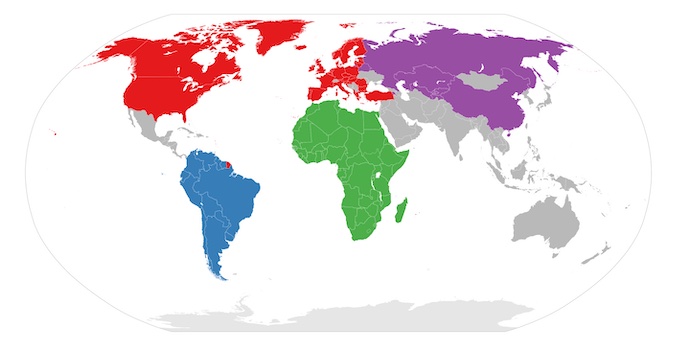The Short Report - May 10, 2023

FUNDING NEWS
The first-ever Ocean Tech Challenge has named two Canadian-United Kingdom winning teams to develop tools to help uncrewed vessels see, sense, and move more skillfully in water. Spearheaded by the Ocean Technology Council of Nova Scotia and Innovate UK, the challenge aims to help vessels venture further to collect new ocean data, while safeguarding the environment around them. The winners of the challenge are St. John's-based eSonar, which is combining its subsea acoustic sensors with Basingstoke, England's Aquatec Group's marine monitoring instruments, and Dartmouth, Nova Scotia's Deep Vision, which is using Malvern, England's D-RisQ's verification technologies to build safety monitor software. The Atlantic Canada Opportunities Agency made a non-repayable contribution of $275,000 for the Ocean Technology Council of Nova Scotia to support the competition in Canada, while Innovate UK is providing $275,000 for the competition in the United Kingdom. ACOA
The Government of British Columbia will invest nearly $75 million over three years to create 3,000 technology-relevant student spaces in the public post-secondary education system. The move is part of the StrongerBC: Future Ready Action Plan, which is aimed at addressing workforce challenges across all sectors in the province and closing the skills gap faced by businesses. Programs will cover cybersecurity, software engineering, data science, life sciences, creative tech, clean tech, and agritech. Spaces will be open to enrolment as soon as September 2023, with others to follow in subsequent years. Government of British Columbia
Four universities in Northern Ontario, including Laurentian University, Nipissing University, Lakehead University, and Trent University, have come together to form a one-year pilot project called the Northern Innovation Cluster, which will focus on critical minerals, clean technology, and battery electric technologies. The universities will hire an industry liaison officer to drive economic development through research and innovation, improve intellectual property literacy, and facilitate collaboration between academia and industry. The Government of Ontario has committed $294,000 through Intellectual Property Ontario for the project. Government of Ontario
POLICY & RESEARCH NEWS
The University of Toronto and McGill University have announced that they will not enter new research agreements with Huawei Technologies amid increased scrutiny of Canadian university partnerships with the Chinese telecoms company and following the University of Waterloo's decision to end all existing partnerships with them. Universities across Canada have come under increased scrutiny of their partnerships with Huawei, amid concerns over Beijing's influence. Canada has banned Huawei from its next-generation 5G wireless networks, but universities remain free to decide whether to collaborate with the company. Toronto Star
The Council of Atlantic Premiers has launched the Atlantic Physician Registry, which allows doctors with a primary practice in Atlantic Canada to practice in any of the four Atlantic provinces by registering for an annual fee of $500. The registry is part of the Atlantic Healthcare Accord of Guiding Principles signed by the Atlantic Premiers in December 2021 as part of efforts to improve health care services for Atlantic Canadians . The Canadian Medical Association is advocating for pan-Canadian licensure to enable mobility of the physician workforce and is urging federal, provincial and territorial governments to build on recent momentum. Council of Atlantic Premiers | Canadian Medical Association
Nine new members have joined national alliance group Research Canada, an organization dedicated to building support for long-term research funding through collaborative advocacy and engagement with government, academia, industry, and the non-profit sector. The new members include the Canadian Association of Optometrists, the Canadian Brain Research Strategy, the Canadian National Institute for the Blind, the Child Development Institute, Mental Health Research Canada, Roche Canada, the Terry Fox Research Institute, the University of Windsor, and Variational AI. Research Canada says its new members are expected to strengthen the organization's ability to represent the interests of the health research and innovation ecosystem as a whole. Research Canada
The Government of Manitoba has abandoned plans to link funding for universities and colleges to performance metrics, such as graduation rates and graduate employability, after concerns were raised by various university stakeholders. A letter from Advanced Education and Training Minister Sarah Guillemard to university stakeholders and acquired by the CBC stated that while the government is still looking for ways to boost accountability for post-secondary institutions, tying funding to performance-based metrics won't be part of it. The government will conduct more consultations, including an online public survey, to explore other measures to boost accountability for universities and colleges. CBC News
RELATED: Alberta joins Ontario to implement performance-based funding for higher education and research
RELATED: Promoting Excellence: Ontario Implements Performance Based Funding for Postsecondary Institutions
The Conference Board of Canada has launched the Canadian Centre for the Innovation Economy (CCIE) with MaRS Discovery District and the Innovation Economy Council as founding members. The centre aims to help entrepreneurs and businesses overcome challenges in innovation by addressing "pain points" including intellectual property, R&D, red tape, talent, and the skills gap in collaboration with its members. Canada ranked 15th out of 132 nations in innovation, according to the Global Innovation Index’s 2022 report. Conference Board of Canada
REPORTS, CONSULTATIONS & SURVEYS
A Centre for International Governance Innovation (Waterloo) report titled "An Economic Mirage: How Canadian Universities Impact Freedom to Operate," argues that the U15, a collective of some of Canada's most research intensive universities, through their partnerships with foreign firms and countries, often result in these entities taking their intellectual property and profits out of Canada. Through examining patent data, IP ownership, and the impact on freedom to operate, the authors say they are highlighting the need for Canada to prioritize its economic return on investment and maximize its ability to commercialize its technology. CIGI
Minister for Prairies Economic Development Canada Dan Vandal has launched an online public consultation portal for the Building a Green Prairie Economy Act, which became law on December 15, 2022. The act calls for a framework for clean economic growth that is informed by consultations with provinces, Indigenous and municipal governments, industry, labour representatives, and people living throughout the Prairies. Members of the public have until June 30 to provide input. Prairies Can
A new Evidence For Democracy survey finds nearly half of Canadians (49 percent) are dissatisfied with government transparency on the factors that influence policy decisions, compared to only 25 percent who say they are satisfied.
Among other key survey findings, half of Canadians feel governments pay too little attention to evidence (53 percent) and public opinion (50 percent) and too much attention on political priority (52 percent) when making decisions. Eight in 10 Canadians (81 percent) want to see key evidence used in government decision-making, so they can evaluate it for themselves. ED
A University of Waterloo research team led by Dr. Komal Habib has completed the first comprehensive estimate of e-waste in Canada to understand its lifecycle, from sales of electronic items to e-waste generation. Findings reveal that the e-waste generation per person has increased from 8.3 kg in 2000 to 25.3 kg in 2020. This trend is expected to continue in the near future, because of Canadian consumer habits and the country’s growing population. UWaterloo says the study underscores the need for proactive forecasts to better manage the evolving electronics sector. UWaterloo
VENTURE CAPITAL NEWS
Canadian venture capital investment in Q1 2023 dropped by 82 percent, compared to the same period in the previous year, according to Briefed.in data. The report also showed a 67 percent decrease in the number of deals. Total funding in the quarter topped out at over $876 million over 55 deals with fintech investment leading the deals. Series A comprised 20 percent of the funding distribution, and 23.6 percent of the deals while Series B captured 18.6 percent of the funding distribution. Investors largely avoided pre-seed and seed deals, respectively only funding 1.2 percent and 7.9 percent. Among reasons given for the decline in recent months are volatile markets due to war and geopolitical tensions in Europe, inflation at 30-year highs, tightening central bank policy, and high oil prices. Betakit
Toronto-based generative artificial intelligence (AI) startup Cohere is in advanced talks to raise $338 million, at an approximation of a $2.7 billion valuation, according to a Globe and Mail report. According to two sources the round is being led by Inovia Capital (Montreal) with partner Steven Woods, a former senior director of engineering with Google, steering the investment. Other investors involved include earlier backers Index Ventures (San Francisco, London) and Radical Ventures (Toronto), as well as Thomvest Ventures (San Francisco, Toronto). Globe and Mail
Montreal-based VC firm Brightspark Ventures has raised $60 million for the first close of its new $120-million fund. The Brightspark Canadian Opportunities Fund II will support early-stage Canadian technology companies. With its latest close for BCOF II, Brightspark now holds around $500 million in assets under management. Desjardins is a first-time investor in Brightspark alongside Fonds de solidarité FTQ. Return limited partners include Fondaction, Fonds québécois d’amorçage Teralys (backed by CDPQ), Royal Bank of Canada, and individual investors and family offices from the Brightspark network. Betakit
Montreal-based venture builder Diagram Ventures has raised $100 million for a new fund and says it will continue investing in fintech start-ups, including both those it creates as well as those it does not. The latest fund represents Diagram’s third fund to support its venture-building efforts, although it is the firm’s fourth overall. Sagard Holdings, part of asset manager Power Corporation, is the anchor investor for the fund. Betakit
THE GRAPEVINE
Dr. Geoffrey Hinton, a founder of the Toronto-based Vector Institute, has ended his decade-long tenure at Google, so he can speak about the risks of artificial intelligence (AI). Hinton is professor emeritus at the University of Toronto. He is considered a pioneer of deep learning — a form of AI based on neural networks. He arrived at U of T in 1987, funded by CIFAR, formerly the Canadian Institute for Advanced Research. Betakit | U of T
Minister of Natural Resources Jonathan Wilkinson has launched the Canada Electricity Advisory Council, an independent body of 19 experts to advise the government on actions needed to achieve Canada's 2035 and 2050 net-zero emissions targets for electricity. The Council will be chaired by Philippe Dunsky and will provide advice to accelerate investment, promote sustainable, affordable and reliable electricity systems, and shape the electricity sector investments announced in Budget 2023. The investments include a 15 percent tax credit for non-emitting electricity generation, $20 billion in low-cost financing from the Canada Infrastructure Bank, and targeted funding where needed. The Council will work with other entities advising the government on climate and energy-related matters, and will prepare and deliver a report outlining its analysis and recommendations to the Minister at the conclusion of its one-year term. Natural Resources Canada
Todd Burlingame has been appointed president and CEO of British Columbia-based Search Minerals, a mining company focused on finding and developing critical rare earth elements and set on advancing its Rare Earth Elements project in southeast Labrador. Burlingame previously served as the chief operating officer and has had a 30-year career in the mining industry. Leo Power has stepped down as interim president and CEO, but will continue on as chairman of the board of directors. Northern News
François Beaulieu, chair and chief executive officer of the New Brunswick Energy and Utilities Board, has passed away. Beaulieu was a lawyer and member of the board since his appointment as vice-chair in 2014. He became the board's acting chair and chief executive officer following Raymond Gorman's retirement in 2020 and was formally appointed as the permanent head of the organization last year. CBC
Events For Leaders in
Science, Tech, Innovation, and Policy
Discuss and learn from those in the know at our virtual and in-person events.
See Upcoming Events
You have 0 free articles remaining.
Don't miss out - start your free trial today.
Start your FREE trial Already a member? Log in
By using this website, you agree to our use of cookies. We use cookies to provide you with a great experience and to help our website run effectively in accordance with our Privacy Policy and Terms of Service.





